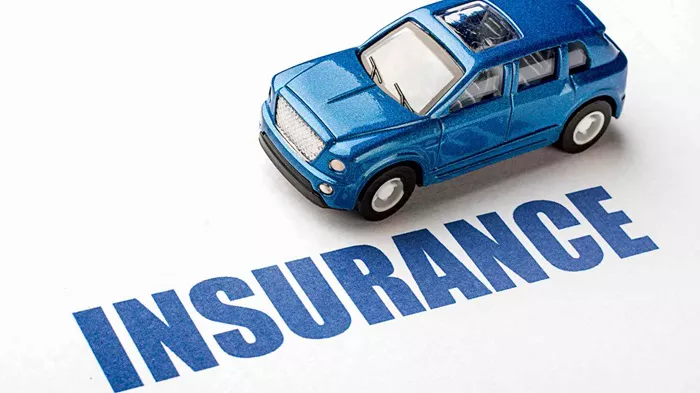As RV ownership grows in popularity, especially among those looking to explore the open road or live a nomadic lifestyle, understanding how insurance works for these vehicles is crucial. Among the various types of RVs, the 5th wheel RV stands out as one of the most spacious and comfortable options, offering full-time living opportunities for many. However, insuring a 5th wheel RV can be a bit more complex than regular vehicles. So, what exactly should you know about 5th wheel RV insurance? In this article, we’ll break down everything you need to consider when insuring your 5th wheel RV.
What Is a 5th Wheel RV?
A 5th wheel RV is a type of travel trailer that is towed by a pickup truck. Unlike traditional trailers, which attach to the rear hitch of a vehicle, a 5th wheel connects to a special hitch located in the bed of the truck. This design allows for greater stability while towing, especially for larger trailers. The name “5th wheel” refers to the type of hitch used, which is a rotating wheel-shaped mechanism.
These RVs come in a variety of sizes and configurations, but they are generally larger and more luxurious than standard travel trailers. Some even include full kitchens, bathrooms, multiple bedrooms, and living areas that make them perfect for extended stays or full-time living.
Why Is 5th Wheel RV Insurance Important?
When it comes to RV insurance, it’s important to understand that RVs, including 5th wheels, are not covered by standard car insurance policies. This is because RVs are considered specialized vehicles with unique risks. Whether you’re traveling cross-country, parked at a campsite, or living in your RV full-time, the right insurance can protect you from unexpected expenses due to accidents, theft, or natural disasters.
The right 5th wheel RV insurance policy is essential for several reasons:
Protection from Accidents: A collision involving a 5th wheel can be costly. Insurance helps cover damage to the RV and any other property or vehicle involved.
Liability Coverage: If you accidentally cause damage to someone else’s property or injure another person, liability coverage ensures you won’t have to pay out of pocket for medical bills or repairs.
Theft and Vandalism: RVs are expensive, and theft or vandalism can lead to significant financial losses. Insurance protects you if your RV is stolen or damaged.
Weather and Natural Disasters: 5th wheels are especially vulnerable to severe weather conditions. Insurance provides coverage in case of damage from storms, floods, or fires.
What Does 5th Wheel RV Insurance Cover?
The coverage options available for a 5th wheel RV vary depending on the insurer and the type of policy you select. Generally, insurance for a 5th wheel includes several types of coverage, which can be tailored to your needs.
1. Collision Coverage
Collision coverage helps cover repairs or replacement costs if your 5th wheel RV is involved in an accident, whether you hit another vehicle, a stationary object, or a tree. This coverage is typically a requirement if you have a loan or lease on your RV.
2. Comprehensive Coverage
Comprehensive coverage protects against non-collision incidents, such as theft, vandalism, falling objects, or damage caused by natural disasters. If your 5th wheel is damaged in a way that is not related to a collision, comprehensive coverage will help pay for repairs or replacement.
3. Liability Coverage
Liability coverage is one of the most important parts of 5th wheel RV insurance. It helps pay for damages to someone else’s property or medical bills if you’re at fault in an accident. This is required by law in most states, so make sure your policy includes adequate liability coverage.
4. Personal Injury Protection
Personal injury protection (PIP) or medical payments coverage helps cover medical expenses for you and your passengers in the event of an accident, regardless of who is at fault. This can include doctor visits, hospital stays, and other related expenses.
5. Uninsured/Underinsured Motorist Coverage
If you’re involved in an accident with a driver who doesn’t have insurance or doesn’t have enough insurance to cover your costs, this type of coverage ensures that you’re still protected.
6. Full-Timer Coverage
For those who use their 5th wheel RV as a full-time residence, full-timer coverage is essential. This provides additional coverage for personal belongings inside the RV and more extensive liability coverage, similar to renters’ insurance.
7. Roadside Assistance
Roadside assistance can be a lifesaver in the event of a breakdown. This coverage typically includes services like towing, tire changes, fuel delivery, and lock-out assistance.
How Much Does 5th Wheel RV Insurance Cost?
The cost of insuring a 5th wheel RV can vary greatly depending on several factors, including:
The value of your RV: More expensive RVs tend to have higher premiums, especially if they have luxury features.
Your driving history: If you have a history of accidents or claims, your premiums may be higher.
Your location: Insurance costs can vary depending on where you live. If you live in an area prone to natural disasters, such as hurricanes or floods, your premiums may be higher.
How often you use your RV: Full-time RV living will likely result in higher premiums due to the increased risk of accidents and wear and tear.
The type of coverage you select: Comprehensive coverage and additional features like full-timer insurance will increase the cost of your policy.
On average, you can expect to pay between $500 and $1,500 per year for 5th wheel RV insurance, but this is only an estimate. It’s always best to get a quote from an insurance provider to get an accurate picture of what your premiums will be.
How to Save on 5th Wheel RV Insurance
While 5th wheel RV insurance is a necessary investment, there are ways to lower your premiums without sacrificing coverage. Here are some tips to help save on your insurance:
Increase your deductible: By raising your deductible, you can lower your monthly premiums. Just make sure you can afford to pay the deductible if you need to file a claim.
Bundle your policies: If you already have car or homeowners insurance, consider bundling your policies with the same insurer to receive discounts.
Take a driving course: Some insurers offer discounts to drivers who complete an RV driving safety course, demonstrating that you’re less likely to be involved in an accident.
Park your RV in a safe location: If you store your RV in a secure, covered area when it’s not in use, you may be eligible for discounts on your policy.
Maintain a good driving record: Keeping a clean driving record will help you avoid rate increases and might even qualify you for discounts.
What Is the Difference Between 5th Wheel RV Insurance and Regular Car Insurance?
One of the main differences between 5th wheel RV insurance and regular car insurance is the coverage. While regular car insurance is designed to cover vehicles that are used on the road, 5th wheel RV insurance is more specialized. RVs have additional risks associated with them, such as the potential for accidents while towing, damages caused by natural disasters, and the risk of theft due to their value.
Another key difference is the additional options available for full-time RV living, including coverage for personal belongings inside the RV and liability coverage that extends to your daily life.
In short, 5th wheel RV insurance offers more comprehensive protection specifically tailored for the unique needs of RV owners.
What Are the Legal Requirements for 5th Wheel RV Insurance?
The legal requirements for 5th wheel RV insurance vary by state. In most states, if you’re towing a 5th wheel, you’ll need to carry at least liability insurance for the vehicle that is towing the RV. However, some states also require insurance for the RV itself, especially if it is used as a permanent residence.
Before hitting the road, make sure you check the insurance requirements in your state. Even if it’s not required by law, it’s still a good idea to have coverage in case of accidents, theft, or other unforeseen events.
How Do You Choose the Right 5th Wheel RV Insurance?
Choosing the right insurance for your 5th wheel RV is an important decision. Start by evaluating your needs, such as the value of your RV, how often you use it, and whether you live in it full-time. Next, shop around and get quotes from multiple insurance providers to compare coverage options and prices. Look for an insurer that offers good customer service, has experience with RV insurance, and provides the coverage options that best fit your needs.
Remember, the cheapest policy is not always the best. You want to make sure you have adequate coverage to protect your RV and your financial security in case of an emergency.
Conclusion
5th wheel RV insurance is an essential part of owning one of these large, valuable trailers. By understanding the types of coverage available, how much it costs, and how to find the right policy for you, you can ensure that your RV is protected no matter where the road takes you. Whether you’re a weekend traveler or a full-time RV resident, having the right insurance can give you peace of mind and allow you to enjoy your adventures with confidence.
If you’re in the process of purchasing or insuring your 5th wheel, make sure to do your research, ask questions, and consult with an expert to find the best insurance policy for your unique needs.
Related topic:
Is RV Insurance Required in Oregon? Everything You Need to Know
Is RV Insurance Required in Texas? Here’s What You Need to Know
Does RV Insurance Cover Hail Damage? Everything You Need to Know




















